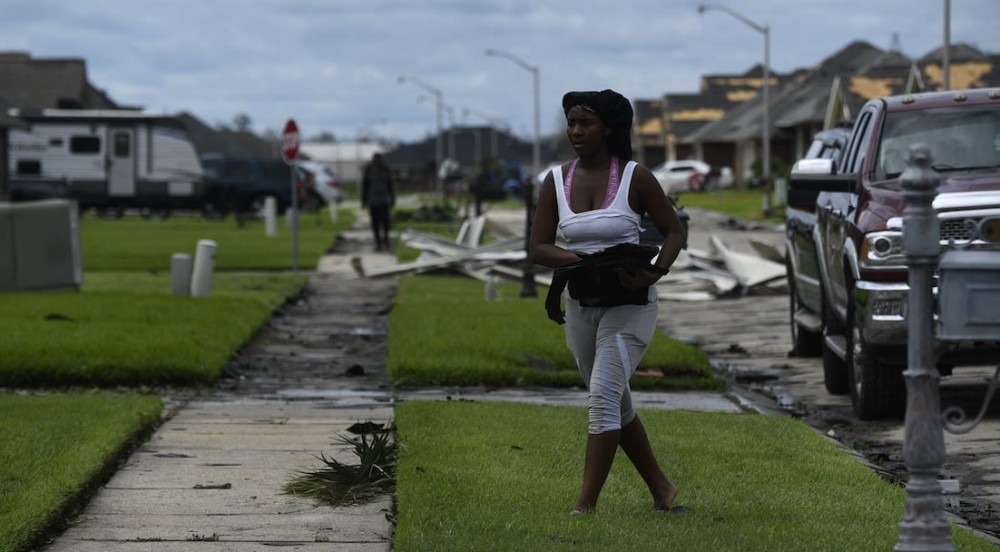As residents of Louisiana and Texas pray for the best in the midst of more tropical storms, one organization is in on the ground, ensuring BIPOC women get the help they so desperately need. The Women’s Foundation of the South launched as a philanthropic entity just months before the Gulf was battered by Hurricane Ida, now the female-led organization is in place to help pick up the pieces.
WFS is the brainchild of Carmen James Randolph, who founded the organization after several years of disaster grantmaking and serving as Vice President of Programs for the Greater New Orleans Foundation. She’s now taking her deep knowledge of women and girls of color in the South and mobilizing a support network to meet their pressing needs. The goal—to advance gender and racial justice in a place that has been at times too willing to hold on to the status quo.
“Single mothers of color and women of color with infants have urgent and specialized needs in recovery times, so integrating gender into the disaster management cycle and strengthening accountability for gender impact is crucial,” WSF said in a statement shared with EBONY. “Women also bear primary responsibility for the welfare of their children, and those living in poverty are particularly vulnerable.”
A decade after Hurricane Katrina, the Institute for Women’s Policy Research examined the ways in which Black women in public housing experienced Hurricane Katrina and how they were managed after the storm. While their stories were varied, the general sentiment was that these women were forced to exhibit an exceptional amount of courage, determination and resiliancy to weather the natural disaster that decimated New Orleans and the governmental disaster that followed.
WSF is hoping to hold the hands of women like them through similar traumatic experiences. The organization understands that women’s workloads, which often includes caring for children, the disabled, and their parents, increases at the same time that traditional support networks may be unavailable.
The 2021 storm season is expected to be particularly cataclysmic because it comes at a time when so many Black families are overwhelmed by COVID, an eviction crisis, and unemployment. Emergency money for a family’s evacuation or rainy day funds to rebuild after a storm is a luxury few people have.
“It takes access to a vehicle, gasoline, and money for hotels and food to leave; if you’re already below the poverty line, evacuating may not be an option,” says Randolph. “Then, you’re left to weather the storm with no power and little sustenance. In addition, many parts of Louisiana are still in longer-term recovery from the previous disasters; recovery can take years, and already-established economic rifts are made deeper.”
WFS is a member of the Greater New Orleans Funders Network and are working with a network of partners to ensure that the resources are there for BIPOC women who need it. Though the storms may leave a streak of disaster in its wake, WFS hopes to be the life raft to keep their hope afloat.













